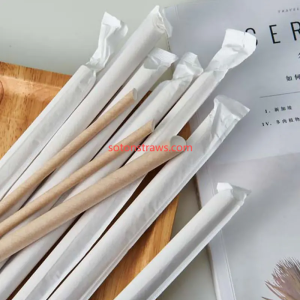The conversation around sustainability often turns toward the objects we use every day, particularly the rise of eco-friendly cutlery . These products are designed to offer convenience while attempting to reduce the environmental burden associated with single-use plastics. They appear as a promising alternative, gracing café counters and takeaway orders, symbolizing a step toward ecological awareness. Yet, this shift brings forth an important debate—are these items truly effective solutions, or do they merely placate consumer guilt without instigating the profound systemic changes necessary for long-term planetary health? While well-intentioned, the focus on individual product swaps can sometimes obscure the larger picture of industrial resource consumption and waste management infrastructure.
Many consumers gravitate toward these sustainable alternatives hoping to make a positive difference. The appeal is understandable; using a compostable spoon feels tangibly better than its plastic counterpart. However, the real impact depends on factors far beyond the material itself. For instance, if such items end up in a landfill without proper commercial composting facilities, their environmental advantage can be significantly diminished. This highlights a critical disconnect between the production of green products and the systems required to manage them at the end of their life cycle. It raises the question of whether our efforts are best spent encouraging individual purchasing decisions or advocating for comprehensive policy and infrastructural development that supports a circular economy.
This is not to say individual actions hold no value. On the contrary, widespread public adoption of greener alternatives creates market demand, signaling to manufacturers and policymakers that sustainability is a priority for the populace. This demand can be a powerful catalyst, pushing industries to innovate and governments to invest in the necessary recycling and composting systems. Therefore, the choice to use eco-friendly cutlery should perhaps be viewed not as an endpoint, but as one part of a broader cultural movement. It represents a conscious step away from a throw-away mindset and fosters a greater sense of personal responsibility personal responsibility toward consumption patterns.
Ultimately, achieving meaningful progress requires a dual approach. Individual behavioral changes and corporate innovations must go hand-in-hand with systemic shifts in regulation and urban planning. We cannot simply consume our way out of the waste crisis; it demands a re-evaluation of how goods are produced, used, and reclaimed. True sustainability involves designing products that are not just less harmful, but are integrated into systems where materials are continuously repurposed. This holistic view encourages us to look past the immediate appeal of a single product and consider the entire lifecycle and the structures that support it.
In this evolving landscape, choosing a partner for your sustainable journey is crucial. We at Soton have dedicated ourselves to more than just manufacturing; we are committed to advancing a comprehensive vision for a greener future. Our approach focuses on creating high-quality, durable alternatives that meet practical needs without compromising our environmental principles. By collaborating closely with our clients, we aim to provide solutions that align with both immediate business requirements and long-term sustainability goals, ensuring that every piece contributes positively to a larger environmental strategy.Click https://www.sotonstraws.com/product/ to reading more information.





